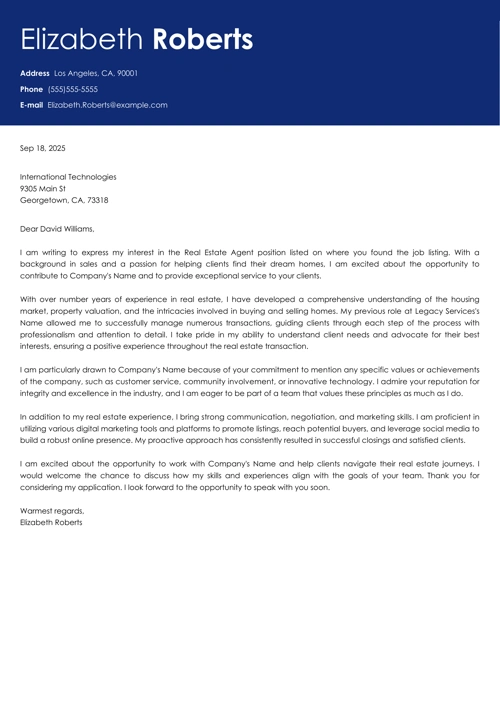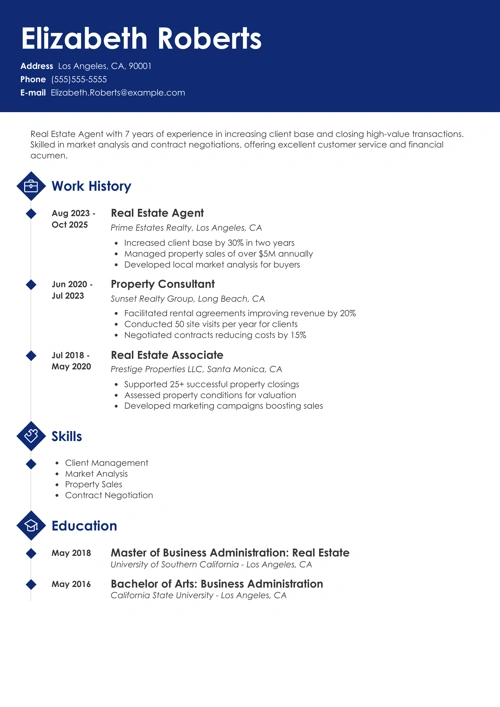Letters of intent, cover letters, covering letters. It’s enough to make your head spin! And let’s face it, you really want to work at that company so you want your application documents to really rock.
So what’s the difference between a letter of intent vs a cover letter?
Con calma. This quick guide will tell exactly what to expect from a letter of intent and a cover letter.
Buckle up and let’s get started.
Want to write your cover letter fast? Use our cover letter builder. Choose from 20+ professional cover letter templates that match your resume. See actionable examples and get expert tips along the way.
Sample cover letter for a resume—See more cover letter samples and create your cover letter here.
Check out these other guides we have about cover letters and differences:
- What is a Cover Letter?
- What is a CV?
- What is a Resume?
- What is a Cold Call Cover Letter?
- Difference Between a Cover Letter and a CV
- Difference Between a Cover Letter and a Resume
- Difference Between a CV and a Resume
- How to Spell Resume?
- How to Write a Pain Letter?
- How to Write a Recommendation Letter
- What is a Motivation Letter?
- Cover Letter Examples for Any Job
Letter of Intent vs. Cover Letter: Letter of Intent Example
Aiden Turner
Network Engineer
1234 Canal Street
New Orleans, Louisiana, 70130
123-456-7890
aidenturner@email.com
linkedin.com/in/aiden.turner
New Orleans, March 30, 2022
Eric Kennedy
HR Manager
Aero Labs
5678 Industrial Parkway
San Francisco, CA, 94107
Dear Mr. Kennedy,
I am writing to express my interest in the Network Engineer position at Aero Labs, as advertised. With my extensive experience in network engineering and a proven track record at Snap Solutions, I am an excellent candidate for this role.
During my tenure at Snap Solutions, I successfully implemented a network infrastructure overhaul that improved system performance by 35%. This project required meticulous planning, collaboration, and problem-solving skills — attributes I believe would translate well to the role at Aero Labs.
My motivation to join Aero Labs lies in your company's innovative reputation and commitment to building robust, state-of-the-art network systems. With my background in designing and maintaining high-efficiency networks, I am confident I can contribute significantly to your team.
My experience and passion for network engineering make me confident that I can contribute positively to Aero Labs. I am eager to leverage my skills and experience to benefit your company, and I believe it would be in Aero Labs' best interest to have me on board.
I would appreciate meeting with you to discuss how my background and skills would benefit Aero Labs. Please feel free to contact me at your earliest convenience.
Thank you for considering my application. I look forward to contributing to Aero Labs.
Sincerely,
Aiden Turner
What is a Letter of Intent
A letter of intent, known also as a letter of interest, is a letter sent to an employer that expresses your intent to become a part of the company or organization even if there is no open position at that moment.
A letter of intent doesn’t look very different from a cover letter at first sight. But unless asked for by the employer, a letter of intent can stand alone and doesn’t need to be accompanied by a resume or CV.
Letters of intent also stretch outside recruitment and are used in any kind of situation where someone wants to express a certain intent.
Read more: What is a Letter of Intent
What is a Cover Letter?
A cover letter is written to accompany your resume in the job application you send for a currently open position. Its purpose is to expand on what’s included in your resume by giving you the opportunity to add some examples or stories that prove your experience and job skills.
A good cover letter doesn’t just rehash the information in the resume, but expands on it with examples of your achievements and also by using the job ad as a cheat sheet of what the employer is looking for.
After analyzing 11 million resumes made with our builder, we noticed that these are the top 10 professions that usually create a cover letter:
- Business Operation Specialists
- Top Executives
- Advertising, Marketing, and PR Managers
- Clerks
- Engineers
- Retail & Sales Representatives
- Healthcare Practitioners
- Financial Specialists
- Teachers and Instructors
- Counselors, Social Workers, and Social Service Specialists
Creating a resume with our builder is incredibly simple. Choose a resume template and follow our step-by-step guidance to have a professional resume ready in minutes.
When you’re done, our professional resume builder will score your resume and our ATS resume checker will tell you exactly how to make it better.
What’s the Difference Between a Letter of Intent and a Cover Letter?
Though they may look almost identical at first glance, a letter of intent and a cover letter aren’t written in the exact same way.
Let’s break down their differences:
What’s Included in a Letter of Intent
To write a professional letter of intent, you should add the below sections:
- Contact details: include them at the top of the letter.
- Salutation: use “Dear John Smith,” instead of “To Whom It May Concern,”
- First paragraph: introduce yourself and why you’re writing to the company. You can mention a specific role you have in mind, but focus mostly on expressing plenty of interest in the company itself.
- Second paragraph: mention your greatest accomplishments and skills with a couple of good examples.
- Third paragraph: explain why you’re interested in joining the company and how you’d think you’d be a great fit. Add a call to action to request an informational interview and discuss opportunities for you in the company.
- Professional closing.
Seems familiar, right?
You’re right. But dive a little deeper and see how a cover letter would be different.
What’s Included in a Cover Letter
To make sure your cover letter is turning heads, follow these tips:
- Add your up to date contact details as well as the employer’s in your cover letter heading.
- Include a professional cover letter salutation, preferably using the hiring manager’s name.
- Start your cover letter with an intriguing opening paragraph that introduces you and the role you’re applying for.
- Demonstrate your value by using examples and achievements that show you have the experience and skills the company is looking for.
- Mention your interest in the company and how you believe you’d be the perfect fit to the team. Add a call to action and ask for a call or meeting to discuss your experience further.
- End your cover letter with a professional cover letter closing.
- If necessary, add a cover letter enclosure.
See how the cover letter is much more tailored to the open position and detailed? A letter of intent, on the other hand, focuses more on the company or on the school, i.e., letter of intent for a medical school. You can mention something you know about them (for example their product) and show you’re keeping up with the industry.
Cover letters and letters of intent also aren’t sent in the same ways. Letters of intent can be sent at any moment while cover letters are sent only when you are applying for a specific position.
If you’re applying for a job opening like most people usually do, definitely write a cover letter that will go along with your resume. If, however, you’d really love to work for a certain company, but they don’t seem to be hiring at the moment, or if a job ad asks for it specifically, a letter of intent is the way to go.
About Zety’s Editorial Process
This article has been reviewed by our editorial team to make sure it follows Zety's editorial guidelines. We’re committed to sharing our expertise and giving you trustworthy career advice tailored to your needs. High-quality content is what brings over 40 million readers to our site every year. But we don't stop there. Our team conducts original research to understand the job market better, and we pride ourselves on being quoted by top universities and prime media outlets from around the world.




